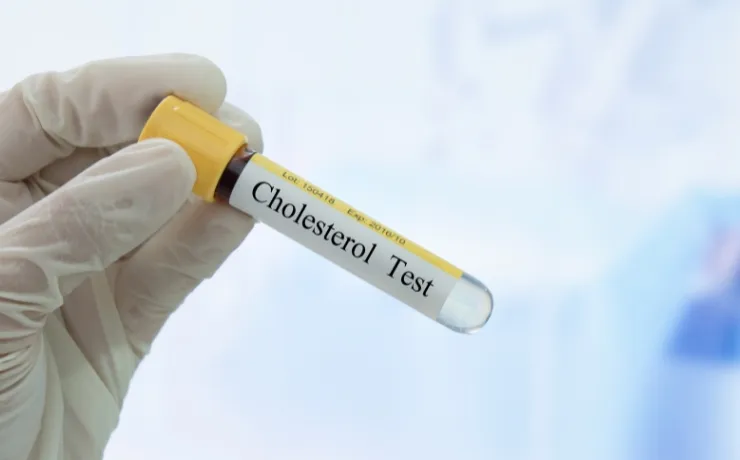Managing High Cholesterol with Lifestyle Changes and Medication

High cholesterol is a common health concern that can increase the risk of heart disease and stroke. At Central Pharmacy, we understand that managing cholesterol can feel overwhelming. With the right combination of lifestyle changes, regular monitoring, and medication when needed, you can take control of your heart health. This guide will explain what high cholesterol is, why it matters, and practical ways to manage it safely.
What Is High Cholesterol?
Cholesterol is a type of fat in your blood that your body needs to function. However, when cholesterol levels are too high, it can build up in your arteries, making it harder for blood to flow.
-
LDL (bad cholesterol) – Can build up in arteries and increase heart disease risk
-
HDL (good cholesterol) – Helps remove excess cholesterol from the blood
-
Triglycerides – A type of fat in the blood that can also affect heart health
High cholesterol often has no symptoms, which is why regular blood tests are important.
The Role of Medications in Cholesterol Management
Medications can be prescribed to help lower cholesterol levels when lifestyle changes alone are not enough. While specific medications vary depending on individual needs, general options include:
1. Cholesterol-Lowering Medications
-
Help reduce LDL (bad cholesterol)
-
May improve HDL (good cholesterol)
-
Often recommended for patients at higher risk of heart disease
2. Triglyceride-Lowering Medications
-
Support healthy fat levels in the blood
-
Help reduce the risk of cardiovascular problems
Tip: Always follow your pharmacist’s instructions when taking these medications. Never change your dose or stop medication without consulting your healthcare provider.
How Pharmacists Can Help
Pharmacists at Central Pharmacy are an important part of your cholesterol management team. We can:
Medication Guidance
-
Explain how and when to take your medications
-
Review potential side effects and interactions
-
Offer tips for integrating medication into your daily routine
Lifestyle Advice
-
Provide education on heart-healthy diets
-
Suggest safe ways to incorporate physical activity
-
Offer resources for monitoring cholesterol levels at home
Monitoring Support
-
Help track medication adherence
-
Review your health progress with your healthcare provider
-
Answer questions about lab results or changes in therapy
Lifestyle Changes to Lower Cholesterol
While medications are effective, lifestyle changes are essential for long-term management.
1. Healthy Eating
-
Eat more fruits, vegetables, and whole grains
-
Limit saturated and trans fats, often found in fried foods and baked goods
-
Include healthy fats, such as those from nuts, seeds, and fish
2. Regular Physical Activity
-
Aim for at least 30 minutes of moderate exercise most days of the week
-
Activities like walking, swimming, or cycling can help improve cholesterol levels
3. Maintain a Healthy Weight
-
Losing even a small amount of weight can help lower cholesterol
-
Combine healthy eating and regular exercise for the best results
4. Avoid Tobacco and Limit Alcohol
-
Smoking can worsen cholesterol buildup and increase heart disease risk
-
Drinking alcohol in moderation supports overall heart health
5. Stress Management
-
High stress can affect cholesterol levels and overall heart health
-
Techniques like meditation, yoga, or deep breathing exercises can help
Tips for Tracking Your Cholesterol
Monitoring your cholesterol is essential for effective management. You can:
-
Keep a journal of your cholesterol readings and medication doses
-
Note lifestyle changes and their impact on your levels
-
Share your records with your pharmacist or healthcare provider regularly
When to Contact Your Pharmacist
Reach out to your pharmacist if you experience:
-
Side effects from your cholesterol medications
-
Confusion about when or how to take your medications
-
Questions about interactions with other medications or supplements
-
Need guidance on lifestyle adjustments for heart health
Your pharmacist can provide advice, support, and reassurance as you manage your cholesterol.
Conclusion
High cholesterol is a silent but manageable health condition. By combining medication, lifestyle changes, and regular monitoring, you can reduce your risk of heart disease and maintain your overall health.
At Central Pharmacy, our pharmacists are here to guide you every step of the way. From explaining medications to offering practical lifestyle tips, we are committed to supporting your heart health. Take charge today by making small, consistent changes and working closely with your healthcare team.
Snippet From our blog
Explore helpful tips, expert insights, and the latest health updates on our blog. Find practical advice and resources to support a healthier life.